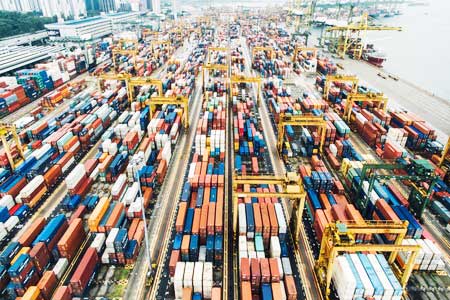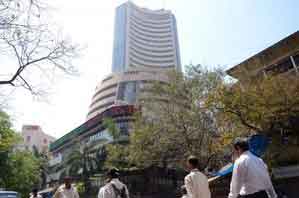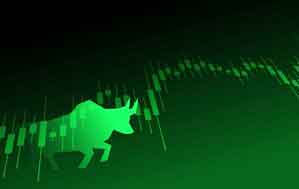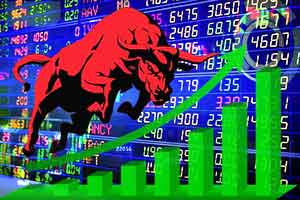Global trade and tariff uncertainties could become a catalyst for reforms in India over the medium term and for growth results, the reforms must run deep, an HSBC Research report said on Tuesday.
Potential US tariffs may have already become a catalyst for reforms like lowering import tariffs, opening up to regional FDI, fast-tracking trade deals, and making the Indian rupee more flexible.
"And India does not have to look too far for models to emulate. Its success in services exports has demonstrated the power of moving up the value chain, from basic (call centre services) to high-tech (professional services)," said the report.
India's goods trade deficit narrowed sharply in February to $14.1 billion, from $23 billion in January.
“The trade deficit tends to narrow in February but this time, it narrowed rather sharply to the lowest in more than three years,” the report mentioned.
India's goods trade deficit narrowed to $14 billion and the services trade surplus rose to $18.5 billion, putting the overall trade balance in a rare surplus zone in February.
A normalisation in imports across the board - oil, gold, and core - led to the narrowing of the goods trade deficit, the report mentioned.
Global trade and tariff uncertainty is likely to lower India's GDP growth in the short term, but could become a catalyst for reforms over the medium term; for growth results, however, reforms must run deep.
Within exports, core goods were softer, led more by weaker investment goods exports than consumer goods exports.
"This is in line with our expectation that globally, FDI and investment may be challenged in 2025, due to global uncertainty," the HSBC report noted.
Within imports, all key categories softened - oil, gold and core. Falling global oil prices lowered the oil import bill by $1.5 billion, while gold imports remained modest after a steep rise in Q4 2024.
The services trade surplus remained robust at $18.5 billion. On seasonally adjusted sequential terms, services exports have been rising by an average 3 per cent for three months.








IndusInd Bank CEO Kathpalia quits due to derivatives accounting lapse
IndusInd Bank announced on Tuesday that its Managing Director and CEO Sumant Kathpalia has resigned from his post in connections with the derivatives accounting lapse that has eroded the private sector bank's net worth.
Sensex closes in green during volatile trade, Nifty ends at 24,336
Sensex opened on a positive note of almost 180 points at 80,396 and surged to an intra-day high of 80,661. However, the index quickly erased its gains, dipping into the negative zone and reaching a low of 80,122, which was 539 points down from its highest point of the day.
Indian stock market rebounds with strong gains, Sensex jumps 1,006 points
The Indian stock market bounced back strongly on Monday despite geo-political tensions, with the benchmark indices ending the day on a robust note.
India-Pakistan tensions: History shows Sensex bounced back stronger after every conflict
Even as tensions between India and Pakistan rise once again following the barbaric Pahalgam terror attack, Indian stock markets have showcased resilience every time the two neighbouring nations went into conflict.
Indian stock market opens higher, Sensex above 80,000
The Indian equity benchmark indices opened higher on Friday amid positive global cues, as buying was seen in the IT, pharma and auto sectors in the early trade.
Adani’s cement major ACC clocks highest-ever annual PAT at Rs 2,402 crore in FY25
Leading cement and building materials company ACC Limited on Thursday reported highest-ever annual profit after tax (PAT) at Rs 2,402 crore in FY25, up by 3 per cent.
Sensex, Nifty extend winning streak for sixth day, rise nearly 8 pc in 6 sessions
The Indian stock market continued its upward journey for the sixth straight trading session on Tuesday, supported by gains in fast-moving consumer goods (FMCG) and private banking stocks.